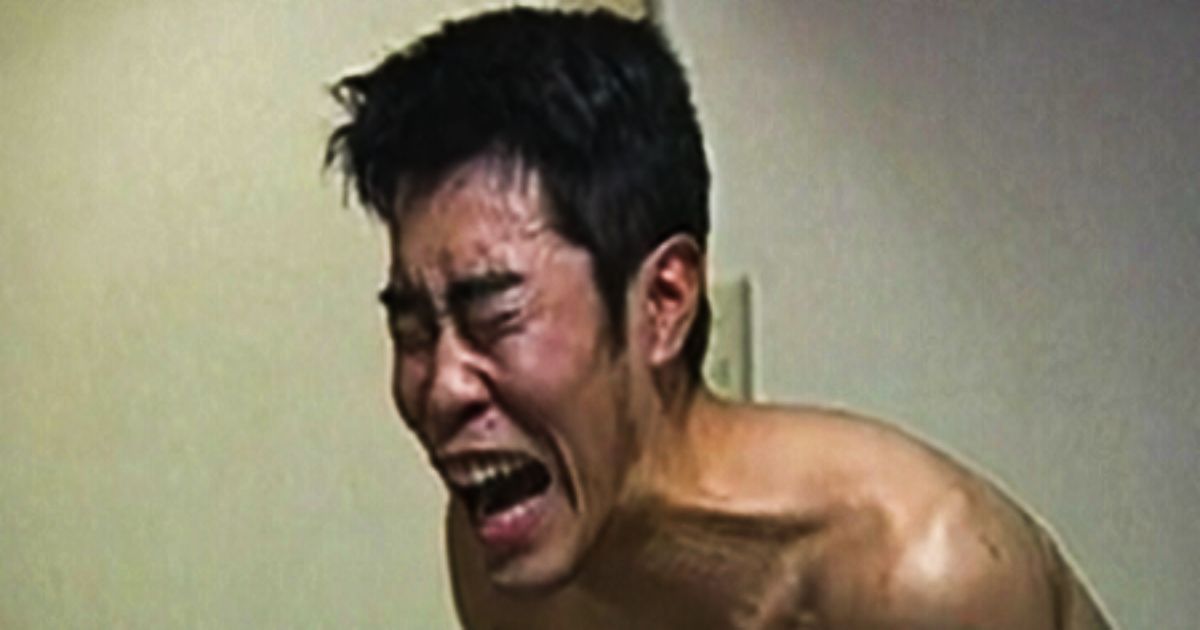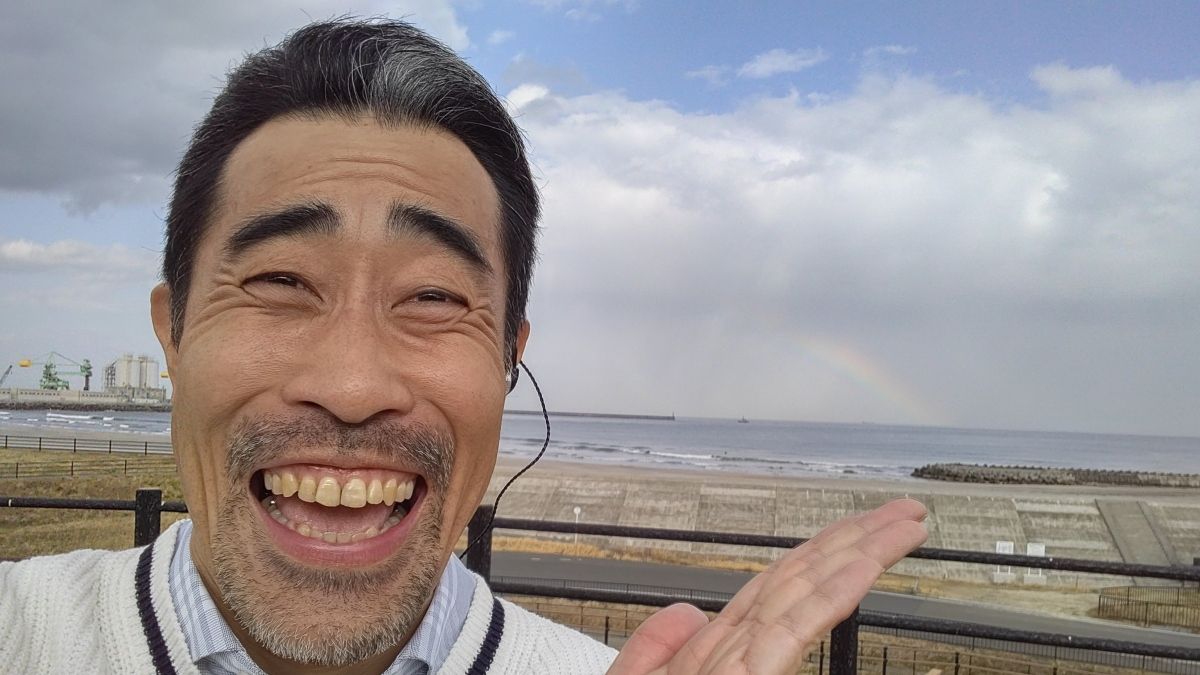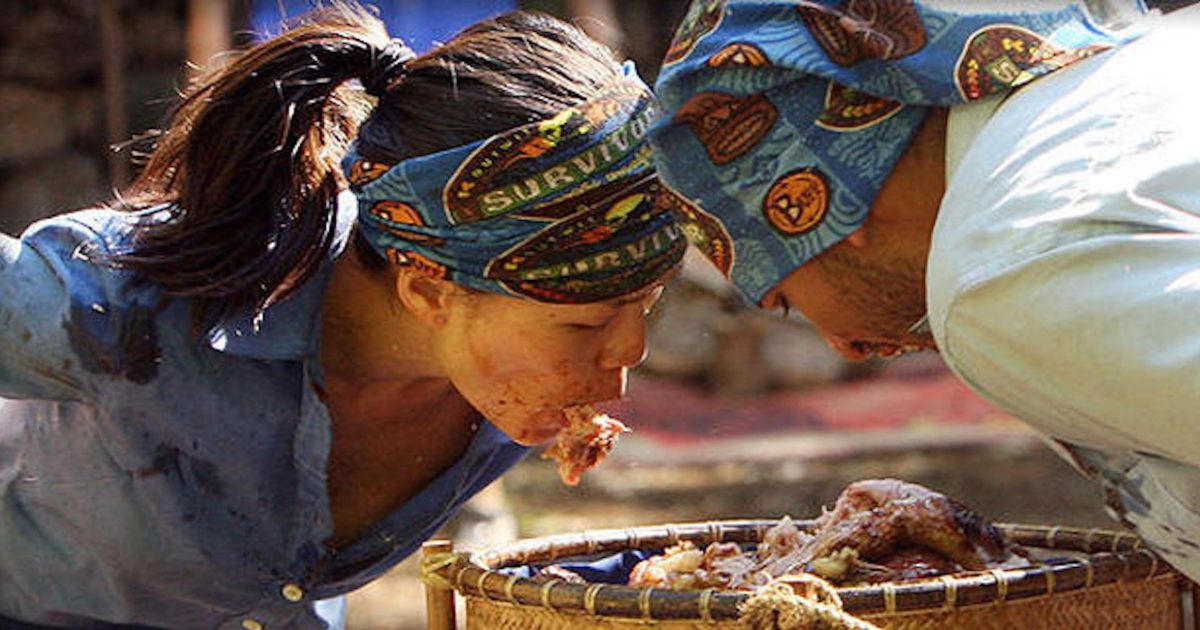The history behind torturous Japanese reality shows is astonishing, to say the least. They have given Asia a reputation for televised cruelty and influenced everyone from The Simpsons’ episode Thirty Minutes over Tokyo and Netflix’s most streamed show to date, Squid Game, to ABC’s series I Survived a Japanese Game Show and its international formats. Far from the weird game shows like Candy Or Not Candy, in which contestants must bite into random household objects to reveal whether it is chocolate or not, some messed up TV shows demonstrate the dark side of Japanese media entertainment. The Truman Show-esque reality TV show Susunu! Denpa Shonen is arguably the most horrific example.
Updated April 19th, 2023: Curious about Susunu! Denpa Shonen? You'll be pleased to know we've updated this article with additional content.
Running from 1998 to 2002 on the Nippon TV network, Susunu! Denpa Shonen is known mostly for the extreme situations each season's participants (usually struggling, desperate comedians) were placed in and the trauma they experienced, all while drawing in a large viewership.
Horrifying Reality TV
Every season of Susunu! Denpa Shonen had a different, often malicious approach, usually like a survival movie gone horribly wrong. Two contestants were stranded on an island and had to make a raft, spending four months trying to escape in one season, while others had to hitchhike from South Africa to Norway in another. One season saw a contestant placed in a room with a TV to watch his favorite baseball team play each day; if the team won, he would receive food, but if the team lost, he wouldn't eat and the electricity would be shut off in the room, with a losing streak meaning starvation.
The most (in)famous season followed Fukushima-born comedian Tomoaki Hamatsu, better known as Nasubi. After being selected to participate in an unknown reality show, aspiring comedian Nasubi was faced with the challenge to stay alone and unclothed in a tiny apartment, secluded from the outside world with only piles and piles of magazines, until he won a combined ¥1 million (about US $10,000) in total from regularly applying to various magazine sweepstakes. He could only survive on what he won from these mail-in sweepstakes. Initially painting the show as a unique experiment that may or may not air on television, producers convinced Nasubi to believe that he was self-recording his day-to-day experiences for further review, when in reality his most confided moments were broadcast for the world to see and make fun of.
Over the course of 15 months, Nasubi spent his life writing letters into publications where he could win prizes (roughly 1400 a week), being taunted and mocked in different ways like by a series of food delivery men, with aromatic meals that weren't intended for him; this somehow managed to entice fans all around the country. The television show broke records, becoming the most-watched series in Japanese history with a total of 17 million viewers each Sunday night (in a country with a third of the U.S. population), doubling the average ratings from HBO's hit high fantasy show Game of Thrones. These 17 million people would watch a man's life be destroyed in real time.
Nasubi's Real Experience
Nasubi's story begins with producers stripping him of the clothes on his back and any supplies of food, as well as any mode of outside communication. His real name is Tomoaki Hamatsu; the producers named him Nasubi because the word is Japanese for 'eggplant,' and due to his nudity the producers had to cover his private parts with an animated eggplant for the television audience (they also mocked his face as looking like an eggplant). The only piece of life that kept him debatably sane were the magazines he looked through for sweepstakes entry forms. The concept has some interesting things to say about capitalism, but none of the horrors that followed were worth it.
For nearly one whole year, Nasubi lived in front of the camera (as if existing within a found footage horror film), with the only possessions being those he won from the sweepstakes, starving at first but then managing to live off of things like a bag of rice or even just a large supply of dog food for extended periods of time.
Throughout the whole duration of the show, Nasubi assumed he was being recorded, and his daily life would be edited and rebroadcast at a later date. What he didn't yet know was that his daily life was being live-streamed, coupled with silly sound effects mocking and making fun of him as he wept, screamed, and generally went mad. He never won clothes, aside from some panties which were too small for him.
What Happened to Nasubi During the Show?
Nasubi reached his goal after 335 days, having won enough items with a combined value of ¥1 million. Although he was led to believe that he had won a special trip for surviving the year, he was abruptly blindfolded by producers and moved to a new location (South Korea) where he would have to win enough earnings in order to get a flight home back to Japan. Nasubi was placed in yet another secluded apartment where he was asked to take off his clothes and instructed to enter more sweepstakes.
Nasubi was a pro by now, and after a bit of a breakdown, he went all-in and was able to win enough in prizes to afford the tickets within a matter of weeks; the producers didn't like this, so of course they changed the rules and forced Nasubi to be able to afford first-class tickets. Again, though, Nasubi beat the odds and made the money in a matter of weeks. He was able to fly back home to Japan, but again, he was taken to yet another secluded apartment. In despair and resignation, Nasubi began to take off all his clothes without instruction. Suddenly, the walls of the apartment abruptly collapsed, revealing a live television studio filled with cheering audience members.
The Dark End of Susunu! Denpa Shonen
Obviously being confused by the whole situation, Nasubi didn't understand that millions of people were watching his story unfold for the past year and a half, as he was unaware that the show had even aired. The problem with Susunu! Denpa Shonen and the format of reality television in general, lies in the fascination of exploiting participants to simply draw in massive amounts of ratings.
In Nasubi's case, the mental and emotion trauma that he suffered, as viewers watched in amusement, is horrifying and astonishing to take in. Being stripped of your clothing, the ability to eat food, communication with the outside world, and degradation beyond anything imaginable is difficult to witness. This isn't limited to Susunu! Denpa Shonen; we can see similar brutality in Survivor, Fear Factor, Born in the Wild, Cheaters, and many others.
What's also important to note is Nasubi's physical and mental transition over time. He lost weight and became nutritionally depleted, and was isolated for so long without human interaction that his speech began to slow significantly. Also, Nasubi engaged in conversations with stuffed animals he imagined being teachers, first in an attempt to preserve his sanity (think Tom Hanks and Wilson in Castaway) but eventually as a symptom of its deterioration, and just about as devastating as schizophrenia (albeit for 15 months).
"Everything was harsh, and every day was like hell back then", Nasubi told Style Koriyama, "The hardest thing was not to be able to see and talk with anyone. My mental condition was at its worse. I was like, 'Why only me? Why do I have to do all these things? I’d rather die than feel like this'... Although I seemed looked like I was having fun most of the time on the edited show, to me, it was full of pain".
What's more revealing is the producer's inability to publicly say that he regrets the show being created or anything he did to Nasubi, while downplaying the mental strain these experiences had on the lives of the contestants (who were sexually abused in one instance, and nearly died as a result of suffering from dehydration in another). Instead, he tries to explain his actions away by glorifying his work, noting that each experience was a miracle caught on film.
It’s Not All Bad: Where Is He Now?
Following the show’s conclusion, Tomoaki Hamatsu (Nasubi) was a household name in Japan, having been thoughtlessly and non-consensually cast into the public eye. With his fate as a reality star decided for him, he was left to navigate an equally high-pressure, stressful, and anxiety-inducing set of circumstances once Susunu! Denpa Shōnen concluded. With most reality television shows now strictly obligated to offer psychological support and assessment following a contestant’s involvement, Nasubi received no such treatment, and thus, was left to fend for himself in an environment that contained remnants of sordid Black Mirror episode, White Bear.
After a long, arduous, uphill struggle with mental and physical health issues, as well as reported problems with social reintegration, holding down conversation, and over-heating in clothes, Nasubi’s recovery from the ordeal seems to be making slow, yet fruitful progress. In 2016, he achieved his goal of climbing the world’s largest mountain, Everest, after four previous failed attempts. During a talk in 2017, Nasubi attributed his achievement of scaling the Himalayan giant to the mental fortitude he built up on the show, a statement that is concurrently a damning indictment on the inhumane conditions he was put under, but in an indirect way turning a negative into a positive.
While his aspirations to make it to the top of Mount Comedy were never realized, he still regularly performs as an amateur stand-up comic. Tomoaki also has the show to thank for frequent guest appearances on television game shows, sitcoms, and an assortment of reality shows, where the visibility of both him and his story has never been allowed to diminish or fade, he's even got his own company aptly named Eggplant Way, a dramatic-stage acting troupe. Ultimately, Nasubi’s tale has a certain degree of poignancy on the best and worst-case scenarios of reality television.
The Problem With Reality TV
As mentioned, the concept of torturous and cruel reality shows extends far beyond Japan. Though the show Susunu! Denpa Shonen ended up being canceled due to a government crackdown on shows involving its explicit nature, the overarching problem lies in the mass infatuation and fan excitement of schadenfreude, or getting pleasure out of watching people suffer (which is an essential staple of many of the best comedy shows and movies, if you think about it). There is a strong audience fascination involving reality television programs and their components of torture.
Whether it's in programs where people are strapped to a lie detector and forced to reveal humiliating secrets on national television (The Moment of Truth), have to binge-eat live bugs (Survivor, Fear Factor), or are required to survive on their own in the wild (Alone) or literally give birth to a child without doctors in the woods (Born in the Wild), the fact that people actually tune in to see participants pressured into terrible situations serves up some of the most nihilistic and bleak truths about the human condition. Nonetheless, these television shows encourage the worst in humanity.
While many people justifiably condemn some reality TV as being 'staged' or 'fake', perhaps viewers should take the time to realize the anguish that many of these participants suffer from are indeed real. Reality television as a whole can produce some great stuff, but it can also cause harm to the subjects who are being filmed in ways no one ever should, and as a result feeds into the most harmful, sadistic, and voyeuristic impulses in the television audience. After learning about Nasubi's story, we all should take into account the microscope that participants are placed under in reality shows for our petty amusement, understanding that the audience is complicit in the overall damage it can put on their personal lives.
You can learn more about the traumatic and sadistic game show, and how Nasubi is doing now, here.

.jpg)

.jpg)




